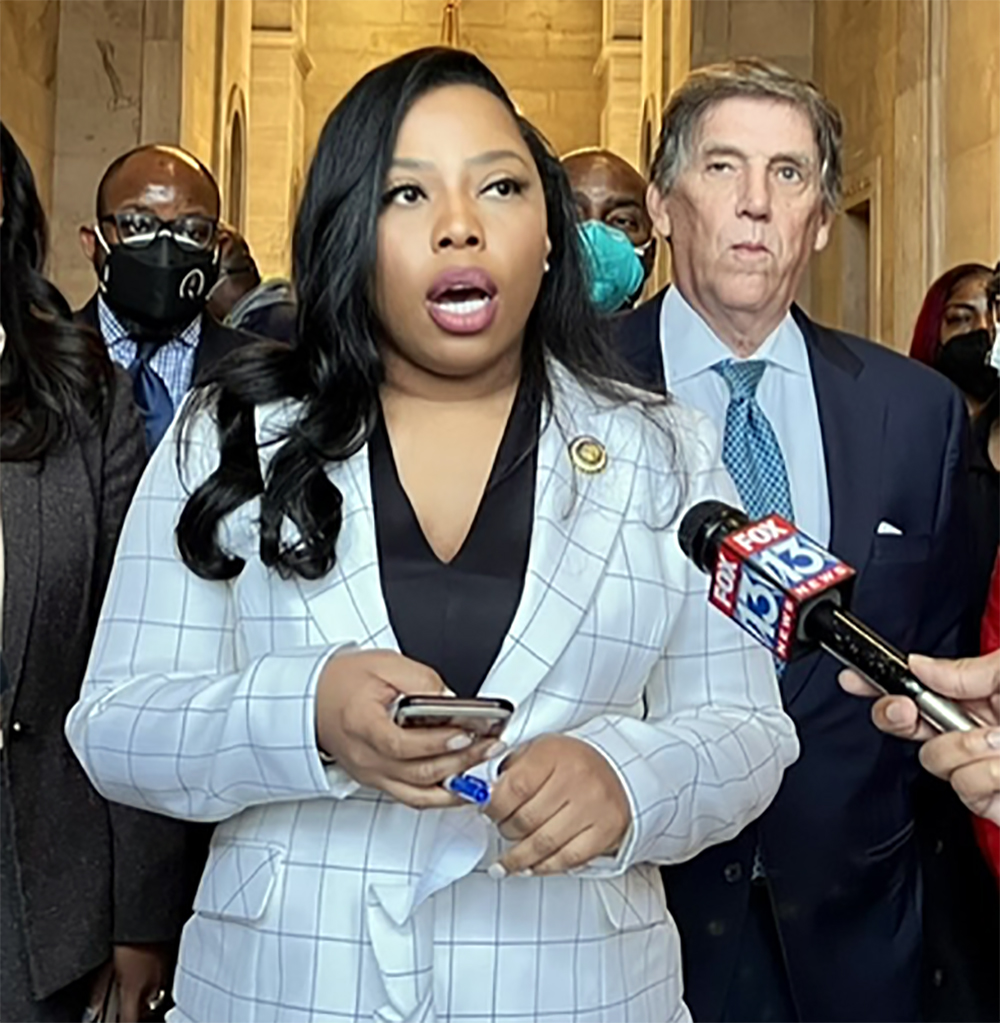The Katrina Robinson case, involving the conviction of a Democratic state senator from Memphis on charges of wire fraud, has taken several unanticipated leaps since federal authorities first began their investigation of her last year.
Robinson first came under suspicion for misuse for personal purposes of some $600,000 in federal funding intended solely for a nursing school she was operating. It was on that basis that she was originally charged on 15 counts of fraud. U.S. District Judge Sheryl Lipman dismissed 11 of those charges — an action that raised few eyebrows, since it seemed to make sense in the name of case consolidation.
Subsequently, although Robinson’s attorney Larry Laurenzi, citing an accountant’s figures, would argue strenuously that Robinson’s personal expenditures came from her school’s profits and not from federal sources, a jury convened in Memphis would convict Robinson on four of five remaining charges, finding her not guilty of one.
What remained, as Robinson and Laurenzi meditated on various appeals, were two questions: What would be the ultimate legal consequences for Robinson of the four convictions? And what would be the reaction of the state Senate, which has rules requiring the expulsion of a member convicted of a felony?
A partial answer to the first question is that in January Judge Lipman, in a move that caught most observers by surprise, chose to acquit Robinson of two of the guilty verdicts found by the jury.
And what the state Senate did was debate expulsion of Robinson from the body, which voted 25-7 on party lines last week to do so. Democrats in both the Senate and the House objected to what Robinson, an African American, called a “procedural lynching.” She had sought a delay in any action on expulsion until after the Senator’s formal sentencing on March 3.
Attorney Laurenzi was quoted as saying, “At this time we are considering every option we have to try to get those last two counts removed or dismissed. And we will continue doing that up until March 3.” As of press time, however, no such option had yet been acted on.
But meanwhile, the U.S. Attorney’s office, in a motion filed Friday by acting U.S. Attorney Joseph C. Murphy Jr., is appealing Judge Lipman’s acquittal action on the two jury convictions that were removed.
Given the political context of the situation, it is relevant that Murphy’s ascension to his temporary position was a civil service matter, absent any identifiable political affiliation on his part. Former U.S. Attorney Michael Dunavant, who resigned last year, had been appointed by President Donald Trump on the basis of recommendations from the state’s two Republican senators. Dunavant’s permanent replacement will be made by President Joe Biden, who will lean strongly on advice from Memphis Congressman Steve Cohen, the state’s ranking Democratic federal official. That’s how the federal appointments process works.
In his motion, Murphy objected to Robinson’s “defiant refusal to accept responsibility” and her “extended campaign … to paint herself as the victim [of] racial animus on the part of anyone who dares call her to account.”
